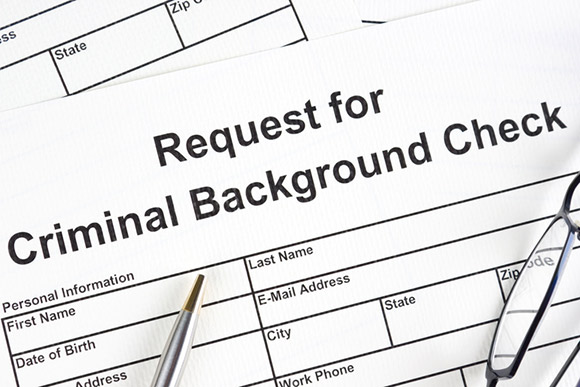A criminal conviction can have lasting consequences long after you complete your sentence. Having a criminal conviction on your record can interfere with your employment, your right to vote and even your ability to volunteer at your child’s school. You might wonder if there’s anything that you can do to clear your name and move on with your life.
Fortunately, Nevada has a process for record sealing. Record sealing removes your conviction from the public record. Employers and other people aren’t able to find a record of your conviction. You may need to work with a Las Vegas criminal defense attorney to seal your records after a conviction. Here’s what you need to know about record sealing in the State of Nevada.

Record sealing is the process of removing a conviction from the public record. Even though your conviction remains on the books, the general public can’t access it. For practical purposes, it’s as though your conviction never happened.
Record sealing is a way for people to get a fresh start after a criminal conviction. If you can show the court that you’re rehabilitated, the court may agree to remove your conviction from the public record and make it as though it never happened.
There are lots of reasons that people want to get their record sealed in Nevada. You might have one motivator, or you might have several of these reasons for pursuing a record sealing:
You might have also heard record sealing referred to as expungement. They’re similar, but not quite the same thing. An expungement is a complete reversal and destruction of a criminal record. Nevada doesn’t have anything like that.
Record sealing is the only option. Some states have a process like record sealing, but they call it expungement. In any event, record sealing is the name for the process in the State of Nevada.
Nevada is one of the more forgiving states when it comes to record sealing. Nevada allows for sealing of more types of offenses than some other states. You can also get your records sealed much sooner in Nevada than you can in other places.
Some crimes are ineligible for record sealing. If your crime isn’t eligible for record sealing, you can never have it sealed. Unfortunately, it’s a part of the public record permanently. It’s essential to determine if you’re eligible for record sealing before you file. Here are some of the crimes that aren’t eligible for record sealing:
If your crime isn’t on the list, you may be eligible to petition for a record sealing after a waiting period. How long you have to wait depends on the type of crime. Here are the waiting periods for the different types of convictions:
Typically, the clock starts ticking when you complete your sentence. For example, if you’re convicted of drunk driving, and you serve a one-year probation, the seven-year wait begins on the day that you complete your probation.
If the charges against you are dismissed, or you’re found not guilty at trial, you don’t have to wait to have the charges sealed. You can file immediately for sealing. That way, if someone runs your criminal history, they don’t find that you ever even faced criminal charges.
To file for record sealing, you prepare a petition. The petition goes to the court that entered your original conviction. A petition for record sealing in Nevada requires many supporting documents including:
It’s up to the judge whether to grant the petition for expungement. The prosecuting attorney can appear at the hearing and present evidence. Even though judges like to grant record sealing when a petitioner qualifies, it’s critically important not to take it for granted.
If your crime involves a victim, the judge may be hesitant to grant your request. You should carefully prepare the evidence to show the judge that you deserve the record sealing.
If your petition for expungement isn’t successful, you can ask the court for a rehearing. Nevada Revised Statute 179.265 says that you have two years from the denial of your petition to file again. You may only ask for a rehearing twice.
When you need to file for a rehearing of your petition for record sealing, it’s important to evaluate what went wrong. You may have lost your case because of a paperwork error. You should carefully correct it before you try again. On the other hand, you may need to work on showing the judge that you’re a community contributor instead of a community concern. You may need to show employment, volunteering, substance abuse treatment or statements of support from family and friends to win your case.
Winning a petition for record sealing can improve your life in important ways. Having an attorney on your side can help you ensure that you don’t miss any steps that are critical. Also, your attorney can help you present your case in a way that’s calculated to show the judge why you deserve to have your record sealed.